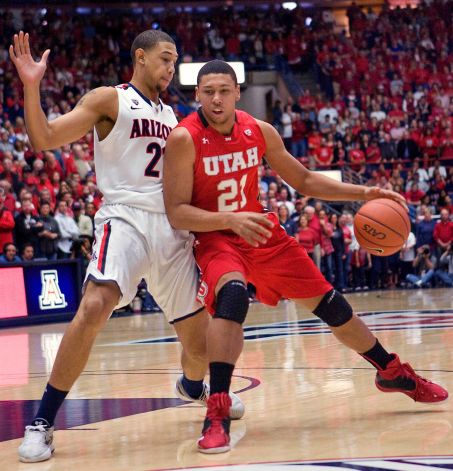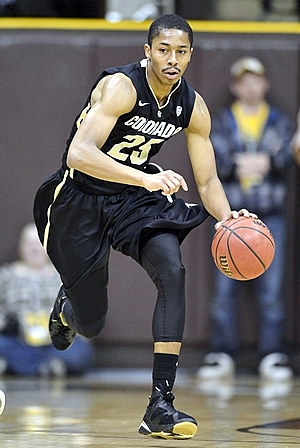Utah Post-Mortem
Posted by PBaruh on April 26th, 2013Now that we are officially in the offseason, it’s time to take a look back and evaluate each team’s 2012-13 performance. Here’s a look at Utah.
What Went Right
After winning only three games in its inaugural 2011-12 Pac-12 season, Utah improved by finishing the season on a high note in beating both Oregon State and Oregon to go 5-13 in conference play. The Utes were still one of the worst teams in the Pac-12, but they upset Washington on the road and Colorado at home. They also scared Arizona twice as they lost to the Wildcats only by a combined seven points in the two contests. Utah found a player to build its team around with freshman Jordan Loveridge who averaged 12.1 points and 7.0 rebounds per game during the season. Jason Washburn had a successful senior campaign himself, averaging 11.9 points and 6.8 rebounds per game too. When the Pac-12 Tournament came around, the Utes were lucky enough to face USC without DeWayne Dedmon and defeated the Trojans in the first round before landing the surprise of Vegas by upsetting Cal in the quarterfinals 79-69.
What Went Wrong
Utah had some troublesome losses in non-conference play against Sacramento State and Cal State Northridge and headed into the conference season overmatched. They lost five straight games to start off the Pac-12 and were a woeful 3-13 before beating Oregon and Oregon State. The Utes’ guard play was inconsistent; Glen Dean and Aaron Dotson, who were supposed to be two of the Utes’ best players this year, disappointed tremendously. Dotson sat out some of the season with a foot injury, but could never gain traction in Larry Krystkowiak’s rotation as he averaged 2.7 points in 17.3 minutes per game. Dean only scored 5.5 points per game in over 25 minutes a game — both guards are now leaving the school.
MVP
Jordan Loveridge was the Utes’ best and most valuable player this year. The 6’6″ freshman used his 230-pound frame to out-muscle smaller players and was a major part of Utah’s offense as he used 24.7 percent of the team’s possessions during the season. He played his best basketball down the stretch by tallying games of 17, 14, 15, and 20 points against Oregon State, Oregon, USC, and Cal, respectively. He logged the highest amount of minutes per game on the team at 31.7 MPG and despite only shooting 40 percent on twos, Loveridge was successful from behind the arc by shooting 36 percent and shot 76 percent from the free throw line.













































